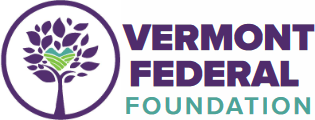OUR SECURITY PHILOSOPHY
At Vermont Federal Credit Union, we work diligently to ensure your safety and security. We want to help protect your personal information, your accounts, your identity and, ultimately, your money.
In today's electronic age, it's extremely important to be careful when doing business online or over the telephone. You should always stay informed about security issues and activities that could affect your economic future. Visit the Federal Trade Commission's website to learn more about different types of scams, and what to do if you've fallen victim to fraud.
Phishing
E-mail phishing attacks are attempts by criminals to gain access to your personal information. Criminals send spam e-mails created to sound and look like official notices. Information entered into these websites goes directly to the criminal. These e-mails and websites usually look trustworthy and convincing. Keep your personal information safe with these Tips.
Identity Theft
Identity theft involves personal information such as name, address, date of birth, social security number or a mother's maiden name being stolen in order to assume an individual's identity. Learn More.
Voice Phishing (Vishing)
Voice phishing attacks are attacks by criminals to gain access to your personal information utilizing the telephone. Criminals use phone systems to call phone numbers and play an automated recording to alert the consumer that their credit card or debit card has had fraudulent activity or that their account has had unusual activity. The message typically instructs the consumer to call a phone number immediately. When the victim calls the number an automated system instructs the caller to enter their card information or account number using the keypad. The call can also be used to collect other sensitive personal information. A trustworthy organization will never request sensitive information in this manner.
Text Message Phishing (Smishing)
Text message phishing is a form of criminal activity using text message to acquire personal information utilizing cell phone text messages. The text message will include an alert requesting immediate attention with a website URL or phone number in an attempt to convince consumers to divulge sensitive personal information. These text messages are not sent from legitimate sources.
Tech Support Scams
Scams of this sort can come from people calling and claiming to be associated with well-known technology companies, such as Microsoft or Apple. Sometimes they send pop-up messages that warn about viruses or other malware on your computer. They will claim to be tech support, ask for remote access, and demand money for their "services". Learn more.










